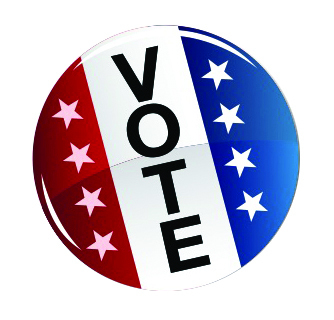Results of one of the only independent polls on Maine’s gubernatorial primaries showed a “wide-open” field leading up to next Tuesday’s elections.
Pan Atlantic SMS Group’s Omnibus Poll, released Tuesday, revealed a big pool of undecided voters, particularly on the Democratic side. Among Democrats, 61.7 percent of those queried said they were undecided, compared with 47 percent of Republicans.
Seven Republican candidates and four Democrats are on the primary ballots.
The poll showed a tight race among the Democrats, with 13.3 percent of those voters saying they planned to vote for or were leaning toward Elizabeth Mitchell, followed by Steven Rowe at 11.7 percent, Rosa Scarcelli at 7 percent and Patrick McGowan at 6.3 percent.
For Republicans, 17 percent planned to vote for or were leaning toward Les Otten, followed by Paul LePage at 10.3 percent, Peter Mills at 8.4 percent, Steve Abbott at 8.3 percent, Bill Beardsley at 3.6 percent, Bruce Poliquin at 3.3 percent and Matt Jacobson at 2 percent.
Pan Atlantic is not connected with any candidate, and the poll was independent. It has a margin of error of 5.7 percentage points at the 95 percent confidence level. It represents a random sample of 600 likely Maine voters, 300 Democrats and 300 Republicans, interviewed by telephone from May 21 to May 29.
That margin of error leaves a potential swing of more than 11 percentage points. The high percentage of undecided voters also increases uncertainty about the races.
“I think it’s totally wide open,” said Patrick Murphy, president of Pan Atlantic.
Murphy said he has seen more energy in the Republican primary than in the Democratic race.
Poliquin launched an ad several weeks ago that attacked Otten, Murphy noted, stirring up Republican voters. That may have reduced the party’s level of undecided voters, though they were still a substantial percentage, Murphy said.
Murphy wondered whether Otten may have peaked. Otten has spent more than $2 million, airing commercials early and often.
“If he hasn’t made the sale to all the undecideds at this point, does it really open up for, especially, LePage, Mills and Abbott to possibly take it?” said Murphy. “It’s a question one could ask.”
Brian Duff, a political scientist at the University of New England, said Otten’s standing in the poll reflected his name recognition, to some extent. While Otten has advertised extensively, some controversial issues have arisen around his campaign.
“Even with that margin of error, the fact that Les Otten has got that much higher support than any of the other candidates has got to be a good sign for him,” Duff said.
He noted that the polling was done before MaineToday Media announced its endorsements of Abbott and McGowan. Such endorsements can give candidates momentum that wouldn’t be captured by the poll, Duff said.
MaineToday Media publishes The Portland Press Herald/Maine Sunday Telegram, the Kennebec Journal and Morning Sentinel daily newspapers, the weekly Coastal Journal in Bath and their respective websites.
On the Democratic side, University of Maine political scientist Mark Brewer noted that Mitchell’s edge “seems to have shrunk a bit from previous numbers.”
“It was built on name recognition,” he said. “Maybe some other people are becoming well-known.”
Murphy said he thinks the races will be won by the candidates who can best get out the vote.
“It’s all going to come down to ground game, I think — unless someone’s got something up their sleeve that they’re going to launch,” Murphy said of the Democratic race.
Rowe has been organizing his campaign for a long time and got into the race early, Murphy noted. Mitchell, the state Senate president, is also a longtime campaigner.
McGowan is aiming to take the 2nd Congressional District strongly, Murphy said, but there appears to be more voter apathy in that district, which may harm McGowan.
Brewer suggested that in the last week before the primaries, candidates must hit the airwaves hard with ads to sway undecided voters. “It’s more an air war than a ground war, with this many undecideds,” he said.
Duff, however, said there might not be as many undecided voters as the poll suggests.
“People do not like to admit to someone that calls them on the phone that they’re not going to vote,” he said, so when registered party members are called by pollsters, they may instead say that they’re undecided.
Staff Writer Matt Wickenheiser can be contacted at 791-6316 or at: mwickenheiser@pressherald.com
Send questions/comments to the editors.


